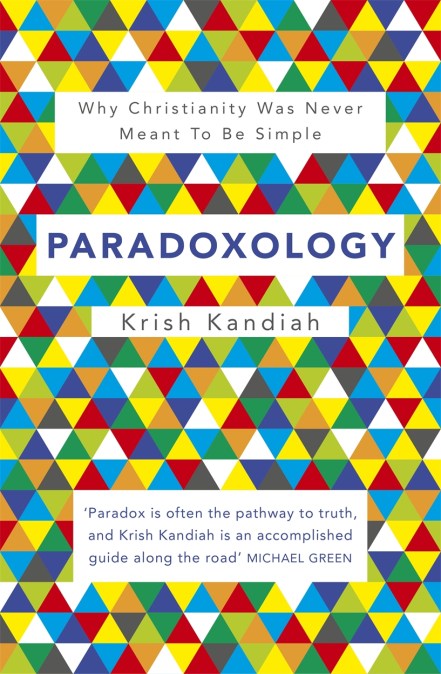The Christian faith is full of apparent paradoxes:
– a compassionate God who sanctions genocide
– an all-powerful God who allows horrific suffering
– a God who owns everything yet demands so much from his followers
– a God who is distant and yet present at the same time
Many of us have big questions that the Christian faith seems to leave unanswered. So we push them to the back of our minds, for fear of destabilizing our beliefs. But leaving these questions unexamined is neither healthy for us, nor honouring to God. Rather than shying away from the difficult questions, we need to face them head on.
What if the tension between apparently opposing doctrines is exactly where faith comes alive? What if this ancient faith has survived so long not in spite of but precisely because of these apparent contradictions? What if it is in the difficult parts of the Bible that God is most clearly revealed?
Paradoxology makes a bold new claim: that the paradoxes that seem like they ought to undermine belief are actually the heart of our vibrant faith, and that it is only by continually wrestling with them – rather than trying to pin them down or push them away – that we can really move forward, individually and together.
– a compassionate God who sanctions genocide
– an all-powerful God who allows horrific suffering
– a God who owns everything yet demands so much from his followers
– a God who is distant and yet present at the same time
Many of us have big questions that the Christian faith seems to leave unanswered. So we push them to the back of our minds, for fear of destabilizing our beliefs. But leaving these questions unexamined is neither healthy for us, nor honouring to God. Rather than shying away from the difficult questions, we need to face them head on.
What if the tension between apparently opposing doctrines is exactly where faith comes alive? What if this ancient faith has survived so long not in spite of but precisely because of these apparent contradictions? What if it is in the difficult parts of the Bible that God is most clearly revealed?
Paradoxology makes a bold new claim: that the paradoxes that seem like they ought to undermine belief are actually the heart of our vibrant faith, and that it is only by continually wrestling with them – rather than trying to pin them down or push them away – that we can really move forward, individually and together.
Newsletter Signup
By clicking ‘Sign Up,’ I acknowledge that I have read and agree to Hachette Book Group’s Privacy Policy and Terms of Use
Reviews
A book confronting the paradoxes at Christianity's heart. Kandiah challenges us to see them as an opportinuty for deepening faith
Evangelical theology has so often been written off as altogether too simplistic; so Kandiah is owed a hearing - and what he offers rewards our attention . . . While this admirably readable exercise in Evangelical apologetics is more likely to attract those already sympathetic to its theological preconceptions, there is still much here for the general reader to use as a stepping-stone to rather more profound theological reflection.
Looking at the Bible's heroes of faith, Kandiah argues that it is only by wrestling with the challenges of faith rather than by pushing them away that we grow in knowledge of God. 'Paradox is often the pathway to truth, and Kris Kandiah is an accomplished guide along the road.'
This book helpfully steers away from overly neat or glib answers to the sorts of questions people really struggle with. It's well written, accessible and deserving of a wide audience . . . presents a compelling vision for the deep riches of the wisdom and knowledge of God.

